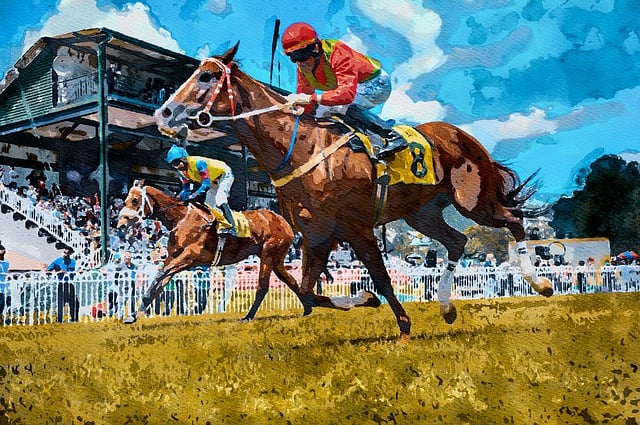 In horse racing, the roles of the jockey and trainer are fundamental to a horse’s performance. This article explores the dynamic between the two and their relative importance in the racing industry. While trainers are responsible for the horse’s preparation and overall condition, jockeys make critical decisions in the heat of the race. Balancing these contributions is key to understanding which has a greater impact on a horse’s success in the competitive world of racing.
In horse racing, the roles of the jockey and trainer are fundamental to a horse’s performance. This article explores the dynamic between the two and their relative importance in the racing industry. While trainers are responsible for the horse’s preparation and overall condition, jockeys make critical decisions in the heat of the race. Balancing these contributions is key to understanding which has a greater impact on a horse’s success in the competitive world of racing.
Why the Analytics Behind Every Factor Matters So Much
The UK has seen a significant rise in online gambling on horse racing, which has become a substantial part of the sport’s culture. For avid punters, any influence on a horse’s health and fitness can make a big deal when it comes to gaining an edge. This is why it matters how the horse is cared for and who has a bigger effect on its performance.
According to the Cheltenham bookmakers list, betting expert Adam Haynes highlights several perks that have contributed to the popularity of online gambling. Among fast payouts, a range of different ways to bet, and even crypto betting, there are a range of other conveniences.
Firstly, the convenience of placing bets online has transformed how spectators engage with horse racing. Punters can now access live streams of races, detailed form guides, and real-time betting odds from the comfort of their homes or on the go through mobile apps.
This can also include a range of analytics that help bettors better assess a horse’s conditioning and training, as well as the backgrounds of its trainers, owners, and jockeys. This is why many punters now care a great deal whether it’s the trainer or jockey who has the largest impact. Here’s a look at both in more detail.
The Trainer’s Impact
The role of a trainer in horse racing cannot be overstated and has become a celebrated part of the sport. They are the architects behind the scenes, shaping every aspect of a horse’s preparation from diet and exercise routines to mental conditioning. Trainers must possess a deep understanding of horse physiology and psychology to tailor training programs that maximize a horse’s potential. They also need to be adept at selecting the right races that suit their horse’s abilities.
Trainers develop strategies based on an individual horse’s strengths and weaknesses, and they must adjust these plans in response to performance and health. Their decisions significantly affect the outcomes of races, as a well-prepared horse is often seen outperforming others despite not having the best raw speed or talent.
The Jockey’s Role During the Race
Jockeys, on the other hand, are the visible stars on the racecourse, making split-second decisions that can lead to victory or defeat. Their role becomes critical once the race starts, as they must navigate the track strategically, deciding when to hold back or push the horse, and positioning themselves advantageously against competitors. The synergy between a jockey and their mount can significantly enhance the horse’s performance.
With factors like the sport evolving continuously and female jockeys becoming more prominent than ever, a jockey’s experience and knowledge of the horse they are riding are crucial. They need to be familiar with the horse’s temperament, its response to competition, and its physical cues. This relationship is often built over time through training sessions and previous races, allowing the jockey to tailor their racing strategy to the horse’s specific needs and abilities.
Conclusion
Determining whether a jockey or a trainer is more important to a horse’s success is complex, as both play integral roles that directly influence outcomes in horse racing. While trainers lay the groundwork for a horse’s physical and mental readiness, jockeys bring this preparation to fruition through their skills and decisions during the race. Ultimately, the collaboration between the jockey and trainer, along with the quality of their individual contributions, defines a horse’s success on the racetrack.